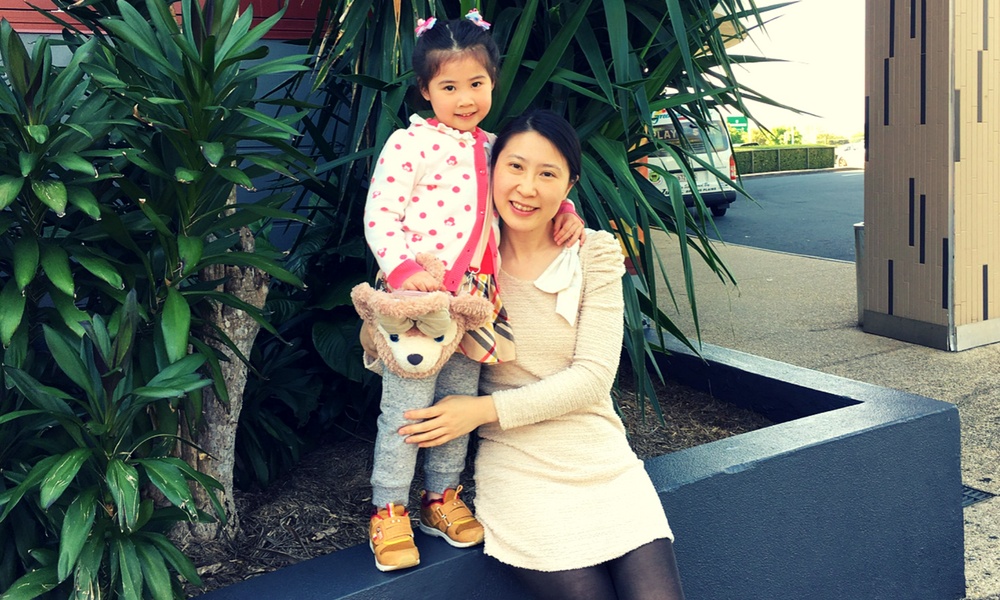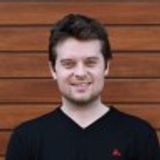SUPPORT ENGINEER TO SOFTWARE ENGINEER - MEET QINGQING WANG
25/06/2018
Written by Frederic Kalinke
In our latest blog, we’d like to introduce you to another rising star within SilverRail, Qingqing Wang. Qingqing joined us in September 2008 as a Support Engineer (a role we now call Application Engineer), but has since flipped the lid and is now working on the other side of our product as a Software Engineer. Here we discuss how her career path has taken her from a small city in Eastern China to her current position in Brisbane tech.
1. Tell us about your background. Where did you grow up? Where did you go to college and what did you study? What was your very first job?
I grew up in Jinan, which is a city in Eastern China. I did a Bachelor of Telecommunications Engineering in China. I then came to Brisbane to do my Masters of Telecommunications Engineering and Masters of IT at University of Queensland (UQ).
SilverRail is my first full-time job. Before that I was working as a tutor at UQ when I was doing my Master’s degree.
2. How did you end up landing your current position as a Software Development Engineer at SilverRail, and what are you working on currently?
After being a Support Engineer for several years, I felt I had a good understanding of the industry rules, but our product always seemed like a black box to me. So, if I wanted to work out how we implemented an industry rule in the product, I had to get help from developers. This made me think that it would be a good idea and opportunity to became a developer, that way, I could understand the product both inside and outside.
About 4 years ago, in one of the coffee meetings with my manager, I mentioned that I was interested in becoming a Software Engineer and learning more about the code.
I’m now currently working on redesigning the API that SilverCore (the world’s first unified platform for global rail, connecting rail carriers with the worldwide ecosystem of travel distributors and providing a scalable, flexible, modular, managed retail infrastructure purpose built for rail.) uses to connect to the backend search products.
3. How did you find moving from a support role to a software engineer role? Did you find the experience helped you transition to the new role?
I wasn’t very confident to begin with. I’ve done a few programming courses at Uni, but I’ve never touched programming since graduation. Changing the role meant changing my career path. It also meant giving up my senior title as a support engineer, and starting from scratch as a junior. I wasn’t sure whether this was the right decision, but I still decided to go ahead.
My manager and co-workers were very supportive during the transition period. I had a senior developer as my mentor and did lots of pair programming with my team members, as well as being given the time to do online courses. This made the transition a lot smoother.
Our software is developed around very complex industry rules. Many Software Engineers need help from support engineers to understand those rules and come up with a solution. Therefore, bringing my experience from support to software was an advantage. Even though I was starting a new role, I felt I had an unfair advantage as I was already very familiar with the industry data and rules.
4. What professional accomplishment are you most proud of?
In 2017, the Brisbane office worked on a project to create a new product – SilverSeek V2 (the next-generation journey search and pricing solution for rail) using a new tech stack and platform. As traditionally, journey engines in the rail industry take many seconds to answer queries due to the vast amount of journey options and the need for live fare availabilities.
SilverSeek is an instant search journey engine which can be used to do full day journey planning or to help customers find the cheapest fares for each day in a large date range, such as an entire month. I was the lucky person who wrote the first lines of code in SilverSeek V2, which was a big technology shift for the Brisbane team from Windows based C# to open-source Java. It also gave me the opportunity to research the latest technologies, think about the structure of the project and apply design patterns. It was a completely different experience from what I’ve done before (which was bug fixing), and was a big step forward in my Software Engineer career.
5. As a travel technology software engineer, how do you stay current with the latest technologies?
Technology is a big talking point in the office. It’s easy to get involved in these conversations and they’re a great way to stay on top of what’s happening in the industry.
In the office there are various Community of Practice (CoP) sessions going on. People who are interested with a particular area meetup regularly and discuss what they recently learnt. The most popular one is the Algorithms CoP.
We recently had a companywide interchange sprint where people were divided into different teams and spent two weeks working on new ideas. This was a really fun way to explore the latest technologies and ideas which spanned from innovative voice and travel applications to explorations with blockchain and distributed caching frameworks.
6. Every day is different, but can you outline what a typical day looks like for you?
I come to the office in the morning, put my lunch in the fridge and start checking my emails. Because we’re asleep when most of Europe is awake, most of our interesting emails will come in overnight.
Once we’re ready to start the day, we have a stand-up in the morning to discuss our work and any issues people are having.
For the rest of the day I work on my sprint tasks, which often involves working with others, as we are working on the same projects and our work needs to be compatible.
If the weather is nice, I tend to go for a walk at lunchtime.
7. Do you have any productivity hacks or tips?
Google.
Or otherwise, I would search past issues to see if it’s something that’s come up before, as this can often provide a good starting point for the issue I’m looking at.
8. What do you like to do in your spare time, or as SilverRail would say – how do you enjoy life?
I have two kids, one is 4 and the other is 2. So, I find myself spending most of my weekends either in a park, on the way to a park, or getting ready to go to a park.




